

I am often asked what books I am reading and can recommend. I am an avid reader and read several books a month. I’d like to share six books that have impacted me and that I reference often in my teaching and writing. And if you’re interested in the books I’ve written, they all can be found here.
*****
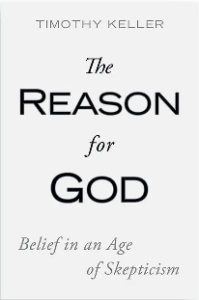 The Reason for God: Belief in an Age of Skepticism by Timothy Keller
The Reason for God: Belief in an Age of Skepticism by Timothy Keller
The late Timothy Keller has compiled a list of the most frequently voiced “doubts” skeptics brought to him. In The Reason for God, he singlehandedly dismantles each of them. Keller uses literature, philosophy, real-life conversations, and reasoning to explain how faith in a Christian God is a soundly rational belief, held by thoughtful people of intellectual integrity with a deep compassion for those who truly want to know the truth.
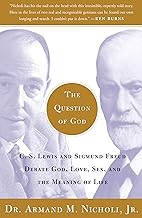 The Question of God: C.S. Lewis and Sigmund Freud Debate God, Love, Sex, and the Meaning of Life by Dr. Armand M. Nicholi, Jr.
The Question of God: C.S. Lewis and Sigmund Freud Debate God, Love, Sex, and the Meaning of Life by Dr. Armand M. Nicholi, Jr.
For more than 25 years, Armand Nicholi has taught a course at Harvard that compares the philosophical arguments of both men. In The Question of God, Nicholi presents the writings and letters of Lewis and Freud, allowing them to “speak” for themselves on the subject of belief and disbelief. Both men considered the problem of pain and suffering, the nature of love and sex, and the ultimate meaning of life and death—and each of them thought carefully about the alternatives to their positions.
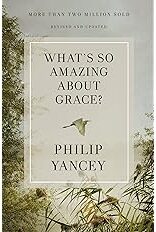 What’s So Amazing About Grace? by Philip Yancey
What’s So Amazing About Grace? by Philip Yancey
Philip Yancey explores grace at street level. If grace is God’s love for the undeserving, he asks, then what does it look like in action? And if Christians are its sole dispensers, then how are we doing at lavishing grace on a world that knows far more of cruelty and unforgiveness than it does of mercy? True grace is shocking, scandalous. It shakes our conventions with its insistence on getting close to sinners and touching them with mercy and hope.
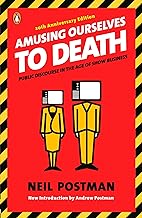 Amusing Ourselves to Death: Public discourse in the Age of Show Business by Neil Postman
Amusing Ourselves to Death: Public discourse in the Age of Show Business by Neil Postman
Originally published in 1985, Neil Postman’s groundbreaking polemic about the corrosive effects of television on our politics and public discourse has been hailed as a twenty-first-century book published in the twentieth century. Now, with television joined by more sophisticated electronic media—from the Internet to cell phones—it has taken on even greater significance. Amusing Ourselves to Death is a prophetic look at what happens when politics, journalism, education, and even religion become subject to the demands of entertainment.
 Renovation of the Heart: Putting on the Character of Christ by Dallas Willard
Renovation of the Heart: Putting on the Character of Christ by Dallas Willard
In Renovation of the Heart, best-selling author Dallas Willard calls it “the transformation of the spirit”- a divine process that “brings every element in our being, working from inside out, into harmony with the will of God or the kingdom of God.” In the transformation of our spirits, we become apprentices of Jesus Christ.
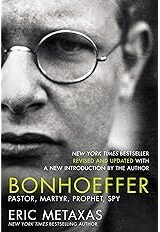 Bonhoeffer: Pastor, Martyr, Prophet, Spy by Eric Metaxas
Bonhoeffer: Pastor, Martyr, Prophet, Spy by Eric Metaxas
As Adolf Hitler and the Nazis seduced a nation, bullied a continent, and attempted to exterminate the Jews of Europe, a small number of dissidents and saboteurs worked to dismantle the Third Reich from the inside. One of these was Dietrich Bonhoeffer, a pastor and author. In this New York Times bestselling biography, Eric Metaxas takes both strands of Bonhoeffer’s life–the theologian and the spy–and draws them together to tell a searing story of incredible moral courage in the face of monstrous evil.
Richard E Simmons III is the founder and Executive Director of The Center for Executive Leadership and a best-selling author.
Add grace and understanding to your day with words from Richard E. Simmons III in your inbox. Sign-up for weekly email with the latest blog post, podcast, and quote.

For local orders in the Birmingham, AL area, enter Promo Code LOCAL at checkout to save shipping. We will email you when your order is ready for pickup.
Bulk discounts for 25 or more books! Call 205-789-3471 for prices.